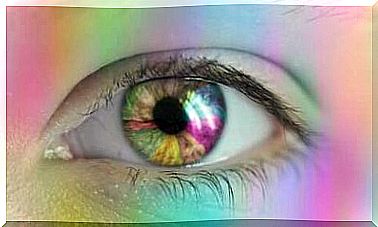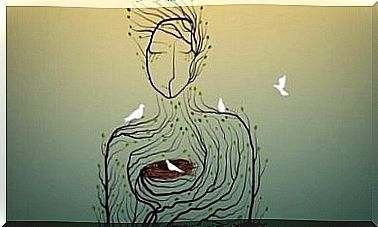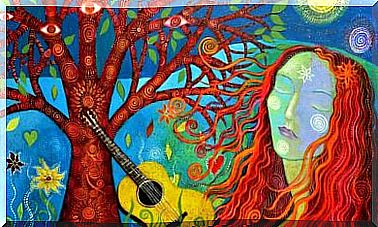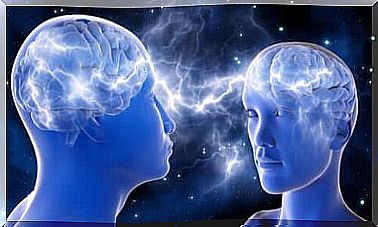The Aporia Or The Wisdom Of Contradiction
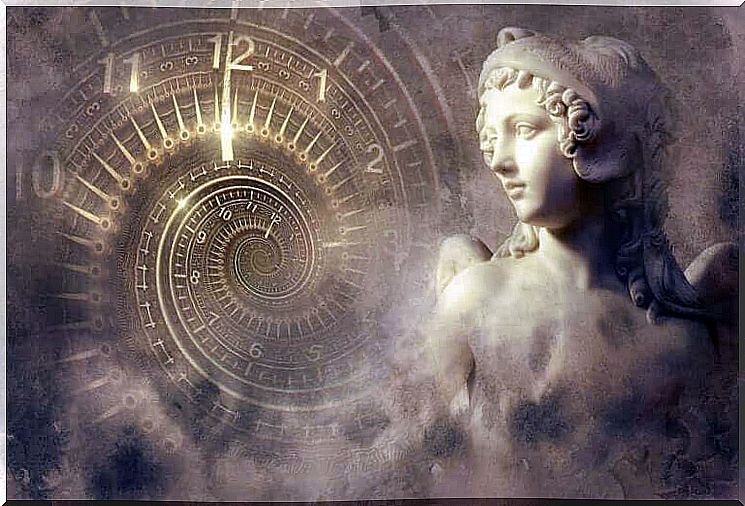
The term aporia comes from the Greek and can be defined as a state of uncertainty or bewilderment when one is exposed to two opposing but acceptable arguments. This is, for example, the classic “to be or not to be” by William Shakespeare or the question of the egg and the hen.
These are impossible questions, philosophical dilemmas that rarely get us anywhere. Nevertheless, in the past and in the time of Plato and Socrates, this type of reasoning was a valuable exercise to initiate deep discussions and dialectical exercises.
The main thing was to raise a doubt, to launch a rhetorical question. And this to achieve a transition between the ambiguity of the world, between the contradictions of life and the complex reasoning that has meaning and does not at the same time.
Moreover, if there is one thing we have to assume, it is that the very reality around us is full of an unbearable aporia. We are, for example, an incredibly individualistic global society. We are free beings, but at the same time victims of a thousand conditioning factors which shape us and standardize us.
The aporia is the wisdom of contradiction, that which invites us to make precious reflections, but which nevertheless leads us nowhere … We are going deeper into the subject here.

What is aporia and what is its purpose?
When referring to the aporia, it is inevitable not to cite the fallacies of the Greek philosopher Zeno of Elea. One of them was the one known as the “Achilles and the Turtle Paradox”.
The essence of this idea rested on one argument: movement as such does not exist. The wise Stoic conceived of mobility as a concatenation of states at rest, that is, as a sum of fixed images.
Therefore, for him, a turtle could be as fast or faster than Achilles, the one with light feet, because movement, like time, is only an illusion. So, and following this premise, he explained that when you shoot an arrow, in reality, it doesn’t move at all. Its movement is the result of the infinite sum of its resting points.
So what can we say about this type of reasoning? If we base ourselves on classical mechanics and Newton’s laws, we could refute them completely.
However, if we integrate Zeno’s perspective on the succession of states at rest, we can come to understand it. Therefore, by understanding these examples, we realize that we are all familiar with the feeling of aporia.
After all, it is this uncertainty that we sometimes feel when exposed to two contradictory but interesting and sometimes even valid ideas. It is a knot of perplexity which, without being directly resolved, invites us to reflect.
Deconstruct to discover: the value of everyday contradiction
“Aporetic” is an interesting adjective that we should be more aware of. It would be good to acquire this characteristic, this exercise of reasoning and reflection with which we can deconstruct many of our realities to discover that there are more options, perspectives and realities.
Deconstructing by aporia means allowing us to discover the contradiction of things. It is also accepting that there are opposing ideas that can both be accepted.
It is possible to learn from each approach, even if it is irreconcilable. The main objective is nothing other than to make people think, to accept the opposite as part of life.
Types of aporias
Today we use the term aporia as a synonym for difficulty. We do this to represent a dead end, a challenge with no apparent rational solution. However, for Greek philosophy, it was like an enigma, like an exercise which encouraged dialogue, the exchange of ideas, theories and approaches to knowledge.
We should not see the aporia as some kind of meaningless Gordian knot. This state of uncertainty should invite analysis and reasoning. It is therefore interesting to understand the two existing typologies.
The argumentative aporia: part of the doubt
In this type of contribution, the starting point is always a question tossed in the air, a question that often serves as a topic for others to think about, even if they know they don’t have a clear answer. The objective is none other than to promote ideas and arguments.
It is interesting to know that most of the contributions are still based on questions. For example: “Is the color orange named after the fruit or is it the opposite?”.
Tonal aporia: part of an opinion
In this second typology, we are faced with a somewhat aggressive or at least peremptory contribution. In this case, the goal is not to dialogue but to impose its truth.
It is as if we were limiting ourselves to recalling exclusively that “the hen came before the egg”. The idea continues to cause us contradictions, but the sentence already has a certain tone and seeks to convince us of a preconceived idea.
The most appropriate thing to do in any case is to use a question-based argumentative contribution. This is the only way to encourage dialogue and reflection.
To conclude, beyond the classic metaphors used by Plato and Aristotle with their students through rhetorical questions, there is an undeniable fact. In today’s world, multiple aporias are present. Politics, society, the world of advertising, etc., do not cease to harbor multiple paradoxes which disconcert us by their absurdities.
It is true that from our point of view, we cannot solve anything. The contradiction is sometimes continuous: we can come to understand all the positions, but we remain a prisoner of perplexity. Becoming aware of it, assuming it and reflecting on these antagonistic universes is positive and will enrich what we already know as the wisdom of contradiction.





